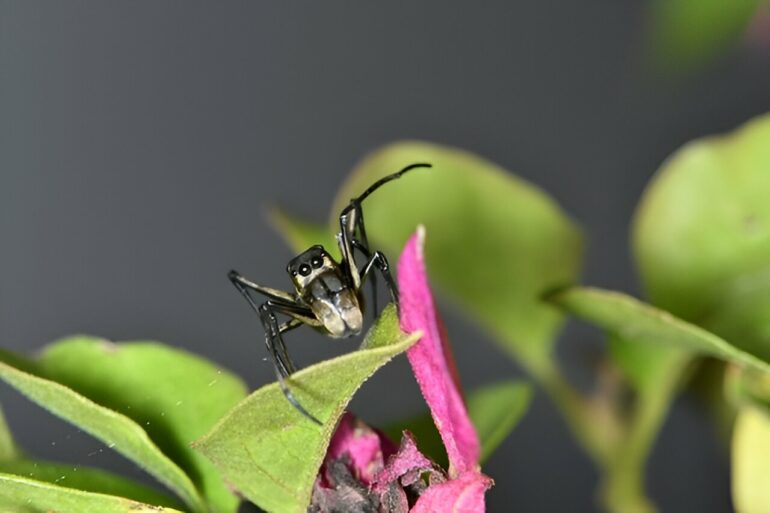Although females often engage in more reproductive activities, they tend to live longer than their males. However, no empirical study has interpreted why females often live longer than their males while suffering from costly reproductive activities.
In a study published in iScience, researchers from the Xishuangbanna Tropical Botanical Garden (XTBG) of the Chinese Academy of Sciences investigated the effects of reproductive activities on the longevity of two sexes, by conducting experiments on the jumping spider Toxeus magnus (Araneae: Salticidae).
The researchers compared the adult longevity between females that nursed their offspring and those did not, to test the overall effects of maternal care activities on maternal longevity. They found that offspring care prolonged maternal longevity. Females who cared for their offspring lived significantly longer than those who were solely responsible for providing “milk.”
They then correlated the reproductive longevity of T. magnus mothers with the number of egg clutches produced, the number of offspring that reached nutritional independence, and the number of adult stages, and found that the number of offspring did not affect the longevity of the mother.
Further experiments and observations showed that mating activities did not affect the longevity of males, but prolonged the longevity of females. The sex role difference in reproduction may be driving the evolution of longer-lived adult females in T. magnus. Female-biased longevity existed only in adulthood, but not in the developmental period, as there was no significant difference in juvenile developmental time between the two sexes.
The study suggests that the sex role difference in reproduction (i.e., males engage only in mating, while females also produce and attend eggs, and provide long-term care for offspring) may be the driving force behind the difference in adult longevity.
Although males can die after mating, mated females require additional time for gestation, egg production, egg care and maternal care after the eggs hatch. On average, adult female spiders lived 95 days longer than adult males, almost as long as the time from egg-laying to offspring dispersal.
“To our knowledge, this is the first study to separately test the effects of nutritional provisioning and non-nutritional care (two major components of offspring care) on female longevity,” said Chen Zhanqi of XTBG.
More information:
Chu Jiang et al, Offspring nursing extends mother’s longevity in a long-term maternal cared spider, iScience (2024). DOI: 10.1016/j.isci.2024.110098
Provided by
Chinese Academy of Sciences
Citation:
Jumping spider study finds offspring care extends lifespan of mothers (2024, May 31)



